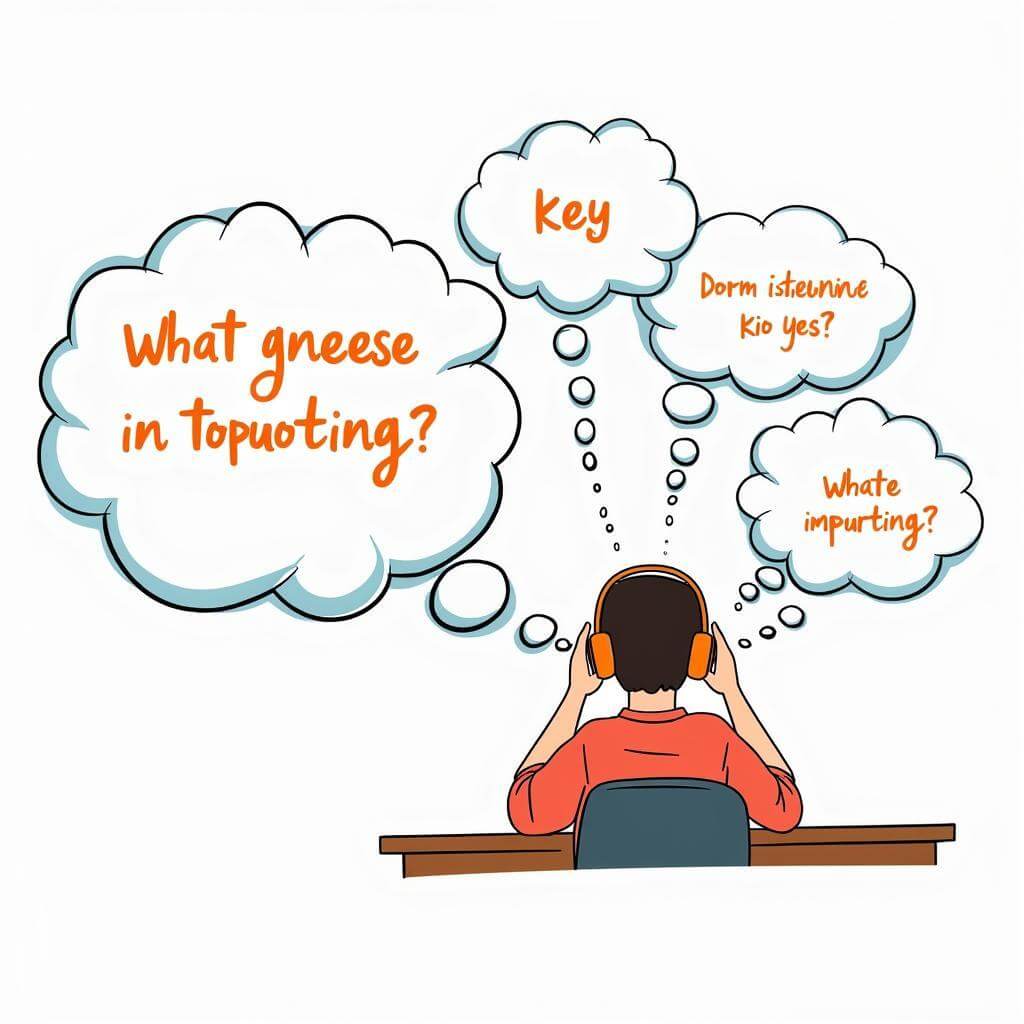In the IELTS Listening test, the ability to recognize important details quickly is a crucial skill that can significantly impact your score. This skill not only helps you answer questions accurately but also allows you to keep up with the fast-paced audio recordings. Let’s explore how you can develop and enhance this essential skill to excel in your IELTS Listening test.
Understanding the Importance of Quick Recognition
Recognizing important details quickly is fundamental to success in the IELTS Listening test. It involves identifying key points quickly while listening to various audio recordings, ranging from conversations to academic lectures. This skill is particularly vital because you only hear the recording once, and the questions often require specific information that may be mentioned briefly.
The Role of Quick Recognition in IELTS Listening
- Efficient information processing
- Improved time management
- Enhanced accuracy in answering questions
- Better comprehension of overall context
- Reduced stress during the test

Strategies for Developing Quick Recognition Skills
To improve your ability to recognize important details quickly, consider implementing the following strategies:
1. Pre-reading Questions
Before the audio begins, quickly scan the questions to identify key information you need to listen for. This primes your brain to focus on specific details.
2. Anticipating Information
Based on the questions, try to predict the type of information you might hear. This mental preparation can help you catch important details more easily.
3. Focusing on Specific Keywords
Train yourself to listen for specific keywords that are likely to introduce important information. For example, words like “however,” “in contrast,” or “significantly” often signal key points.
4. Developing Note-taking Skills
Practice taking concise notes that capture the essence of what you hear. Focus on writing down only the most crucial information.
5. Improving Concentration
Enhance your ability to concentrate for extended periods. Regular practice with longer listening exercises can help build this skill.
Examples of Quick Recognition in Action
Let’s look at some examples of how quick recognition works in typical IELTS Listening scenarios:
-
“The meeting will be held on Tuesday, not Monday as previously announced.”
- Key detail: Change in meeting day
-
“Our new office address is 123 Oak Street, spelled O-A-K Street.”
- Key detail: Spelling of street name
-
“The experiment resulted in a 15% increase, which was statistically significant.”
- Key detail: Percentage and significance of result
-
“Tickets are available online until Friday, after which they can only be purchased at the venue.”
- Key detail: Deadline for online ticket purchase
-
“The course code has changed from ENG101 to ENG201 for the upcoming semester.”
- Key detail: New course code
Applying Quick Recognition to IELTS Listening Tasks
Different sections of the IELTS Listening test require varying approaches to quick recognition. Let’s explore how to apply this skill effectively:
Section 1: Social Situations
In this section, focus on recognizing key personal details, dates, and practical information. Listening for key factual details is crucial here.
Section 2: Public Announcements or Talks
Pay attention to main ideas, supporting details, and any specific instructions or guidelines mentioned.
Sections 3 and 4: Academic Discussions and Lectures
These sections require recognizing complex ideas, relationships between concepts, and specific academic terminology. Focusing on specific keywords can be particularly helpful in these more challenging sections.
Common Mistakes to Avoid
When developing your quick recognition skills, be aware of these common pitfalls:
- Focusing too much on unfamiliar words and missing subsequent information
- Writing too many details and losing track of the audio
- Failing to adapt to different accents and speech patterns
- Neglecting to read questions thoroughly before listening
- Overthinking and second-guessing your initial recognition of details
Practice Techniques for Improving Quick Recognition
To enhance your ability to recognize important details quickly, consider these practice techniques:
- Timed note-taking exercises
- Listening to varied audio sources (podcasts, news broadcasts, academic lectures)
- Practicing with IELTS sample tests under timed conditions
- Improving response time in listening through regular speed drills
- Engaging in active listening exercises with native English speakers
Conclusion
Mastering the skill of recognizing important details quickly is essential for success in the IELTS Listening test. By implementing the strategies discussed and consistently practicing, you can significantly improve your performance. Remember, quick recognition is not just about speed; it’s about efficiency and accuracy in identifying crucial information.
As you continue to prepare for your IELTS test, focus on developing this skill alongside other key aspects of listening comprehension. Consider exploring ways to boost listening comprehension with native English speakers to further enhance your abilities. With dedication and the right approach, you can confidently tackle the IELTS Listening test and achieve the score you desire.